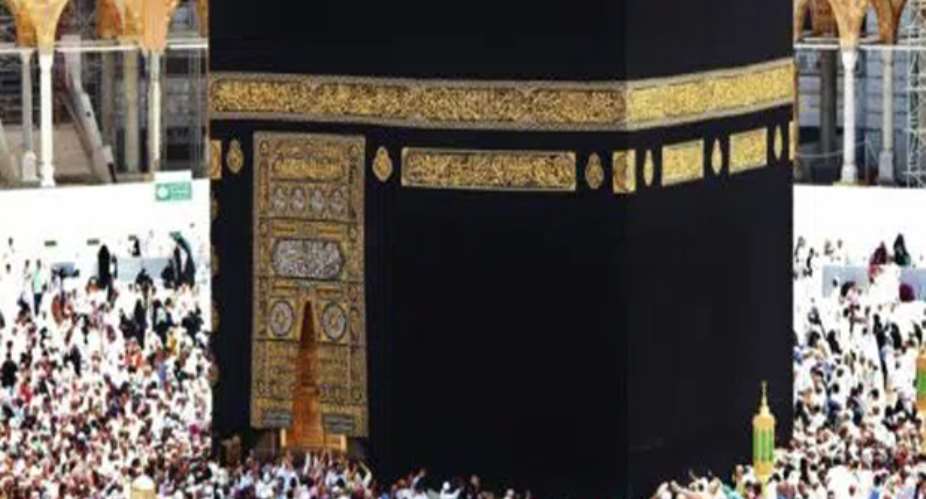First batch of pilgrims airlifted
By Yahuza BERKHOFF
The first group of 417 pilgrims was successfully airlifted from Tamale International Airport to the Kingdom of Saudi Arabia on Saturday, May 10 2025.
A second group departed the following day, officially commencing the 2025 Hajj season, which will see a total of 5,000 Ghanaian pilgrims transported in ten phases from Tamale and Accra.
This year’s pilgrimage stands out not only for its early and well-coordinated departures, but also as a testament to President John Dramani Mahama’s commitment to equitable governance and the fulfilment of campaign promises.
Notably, President Mahama oversaw a reduction in the Hajj fare from GH¢75,000 in 2024 to GH¢62,000 in 2025—offering each pilgrim a GH¢13,000 saving.
This achievement, realised without reliance on state subsidies, was made possible through strategic diplomatic engagement and stakeholder consultations spearheaded by the Interim Hajj Taskforce, chaired by Alhaji Collins Dauda.
That this initiative was led by a Christian president has drawn widespread commendation. President Mahama’s efforts, many say, have reinforced the principle that leadership must transcend religious affiliations.
His intervention has restored dignity to the Hajj process and reassured Ghanaian Muslims of their full recognition as citizens of the Republic.
Further easing the journey for pilgrims is the recent strengthening of the Ghanaian cedi against major foreign currencies.
The improved exchange rate is expected to offer practical benefits—ranging from accommodation and feeding to internal transportation in Saudi Arabia—allowing pilgrims to derive greater value from every cedi spent.
In previous years, exchange rate fluctuations caused last-minute cost increases that added pressure to an already demanding process. This year, the currency’s stability is enabling pilgrims to plan with confidence.
The confluence of reduced fares and a favourable exchange rate has made the pilgrimage accessible once again to many who had been priced out in recent years. For thousands, this is not merely an economic reprieve but a profound spiritual and emotional triumph.
However, the success of the current Hajj operations has also sparked criticism of the legacy of former Vice-President Dr. Mahamudu Bawumia, who led the Economic Management Team and positioned himself as a champion of Muslim interests.
Under his tenure, Hajj fares surged from GH¢11,000 in 2016 to GH¢75,000 by 2024—representing an increase of 581 percent.
Many Muslims who had hoped Dr. Bawumia’s religious identity would result in favourable policies for the community expressed disappointment.
His administration has been accused of politicising the Hajj process, allegedly distributing free tickets among party loyalists while ordinary Muslims struggled with soaring costs and chaotic logistics.
The perceived failure to rein in costs became a flashpoint in his ultimately unsuccessful 2024 presidential bid.
In contrast, President Mahama has adopted what many see as a pragmatic, transparent and inclusive approach. Within weeks of assuming office, he constituted the Interim Hajj Taskforce with a clear directive: ease the financial burden on pilgrims and restore public confidence in the process.
In addition to securing lower fares, the administration successfully negotiated an increase in Ghana’s Hajj quota by 1,000 pilgrims—progress attributed to the legitimacy and diplomatic clout of a responsive government.
President Mahama has reiterated his belief in the respectful separation of religion and public finance. While maintaining that government will not use taxpayers’ funds to sponsor religious pilgrimages, he affirmed that the state will play a facilitative role to ensure fairness and dignity in such processes.
This ethos is not new: during his previous tenure, the construction of the National Mosque of Ghana commenced with support from the Turkish Hudai Foundation, not Ghanaian taxpayers. This stands in contrast to the now-abandoned US$58million National Cathedral project, which was publicly funded.
As the first planes carrying pilgrims soared over the skies of Tamale, they symbolised more than the start of a sacred journey—they lifted the hopes of a community long yearning for accountable and respectful governance.
President Mahama’s leadership, many believe, demonstrates that a Christian president can effectively champion Muslim welfare—not for political expedience, but out of a genuine commitment to national unity.
The 2025 Hajj season, thus, marks more than a pilgrimage; it is a moment of renewed faith in leadership.
From fare reductions and currency stability to diplomatic engagement and administrative excellence, Ghana’s Muslim pilgrims embark on their journey with renewed pride and dignity.
As subsequent batches prepare for departure in the days ahead, one conclusion is evident: President Mahama has not only fulfilled a campaign promise—he has written a compelling new chapter in the story of inclusive and compassionate governance in Ghana.
Email: yahuuzeaide@gmail.com
The post First batch of pilgrims airlifted appeared first on The Business & Financial Times.

